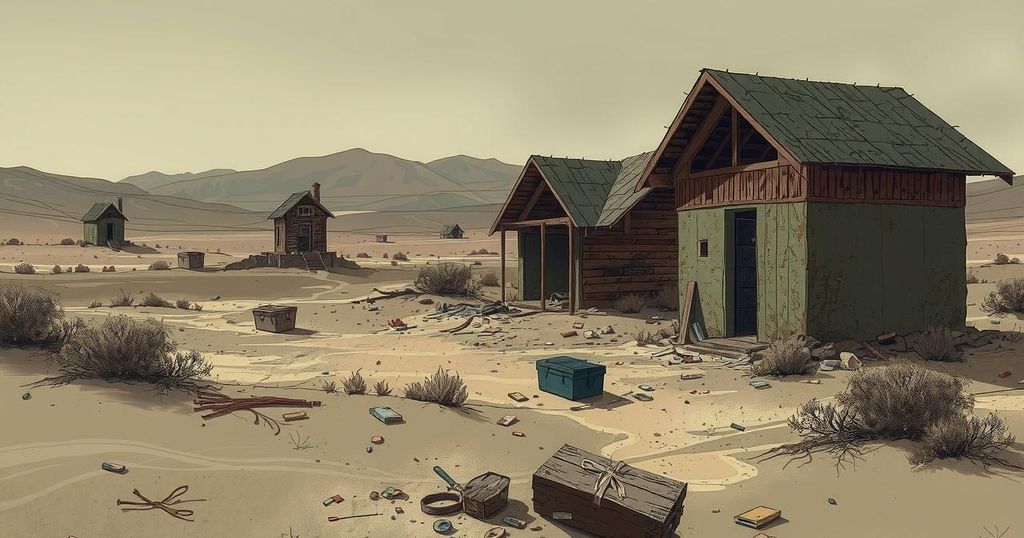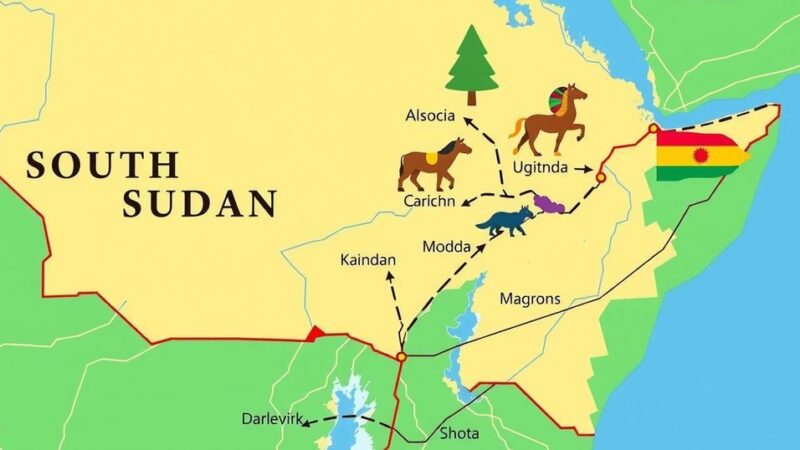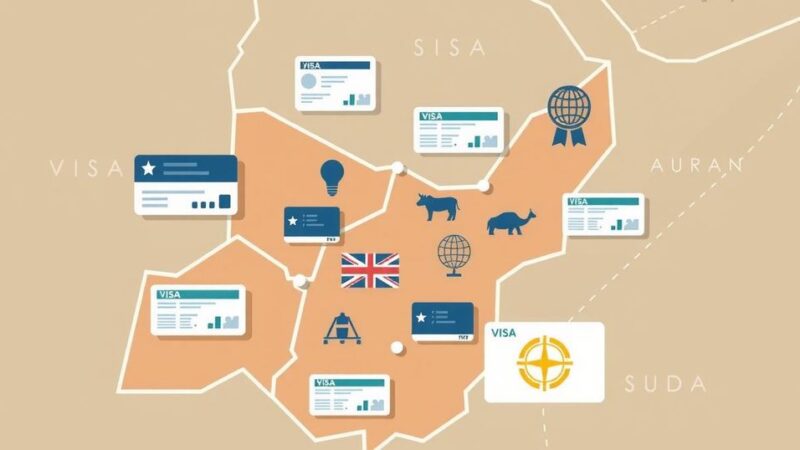Clashes in South Sudan have displaced at least 50,000 people since February, with UN officials warning of an impending relapse into civil war. Ongoing violence in Upper Nile State puts vulnerable communities at risk and disrupts humanitarian aid. Recent air strikes have exacerbated the situation, leading to casualties and increased cholera cases, while a peace agreement between key political figures faces serious threats.
Recent clashes in South Sudan have displaced over 50,000 individuals since February, according to a statement from a United Nations agency. The ongoing violence particularly concerns conflicts in the Upper Nile State, where forces aligned with President Salva Kiir and First Vice President Riek Machar are engaged in hostilities. On a concerning note, the UN official noted that the nation is on the verge of slipping back into civil war, jeopardizing established peace agreements.
Anita Kiki Gbeho of the United Nations Office for the Coordination of Humanitarian Affairs (OCHA) stated that the escalating violence exacerbates the vulnerabilities of affected communities and hinders critical humanitarian services. In recent incidents, an air strike by the South Sudanese government in Nasir County resulted in the tragic death of 20 individuals, including children. OCHA reported that approximately 10,000 displaced individuals have fled to Ethiopia, and a cholera treatment unit in Nasir has been shut down, highlighting the dire humanitarian situation.
Nicholas Haysom, head of the UN Mission in South Sudan (UNMISS), voiced that the country is at a critical juncture, warning that further conflict could reverse years of efforts toward peace. He referenced the instability in neighbouring Sudan as a cautionary example of how rapidly a country can fall into devastating warfare. Haysom called for all factions to de-escalate tensions promptly to avert a potential catastrophe.
Furthermore, Doctors Without Borders (MSF) reported 1,300 cholera cases in Akobo County, while local relief organizations are grappling with financial limitations due to severe cuts in USAID funding. One healthcare provider expressed despair over the lack of medical supplies to properly assist patients, stating, “There is no hope for refugees and returnees.” This ongoing turmoil poses a significant threat to the peace agreement established in 2018, which aimed to end the prolonged civil conflict that resulted in approximately 400,000 fatalities.
Allegations of armed conflict persist, with Kiir’s followers accusing Machar’s forces of inciting unrest within Nasir County due to their association with the armed youth group known as the White Army. Recent skirmishes led to significant violence, including an assault on a military camp and casualties among UN personnel during a rescue operation.
In conclusion, the situation in South Sudan remains precarious as intensified clashes have resulted in the displacement of over 50,000 individuals. The existing humanitarian crisis is further aggravated by potential cholera outbreaks and the suspension of essential services. Warnings from UN officials emphasize the urgency to address rising tensions to prevent a resurgence of civil conflict, which would undo previous peace efforts. Hence, there is an imperative need for all parties to engage in dialogue and halt hostilities for the sake of the affected populations.
Original Source: jordantimes.com






